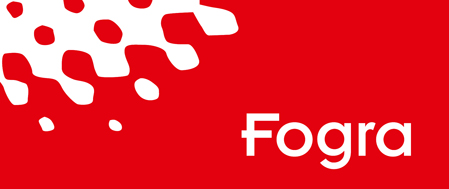NEWS
Antiviral technology cleans up packaging hygiene concerns
According to new research, hygiene is now the number one concern for people when it comes to packaging. In the wake of COVID-19, consumers are looking for confidence that the packaging they come into contact with is as safe as it can be. More than three quarters of Britons now consider the hygiene of the products and packaging they interact with and almost half of us believe those concerns for safety and hygiene will remain after the pandemic.
The new research has been commissioned by specialist papermaker James Cropper as it extends testing on the anti-viral effectiveness on its packaging papers that contain PaperGard antiviral and antibacterial technology.
The results show that PaperGard is now proven to be effective at reducing the presence of SARS-CoV-2, the virus that causes COVID-19, on the surface of paper. PaperGard protected papers reduced the viability of the viral strain by over 95% in only 15 minutes, and by 99.9% within 2 hours when tested against ISO 18184, an antiviral test on porous surfaces.
The increasing need to offer consumers more reassurance means brands are looking for ways to reimagine their products and their packaging. PaperGard utilises technology that is built into the paper during manufacture, without affecting its appearance. The latest test results demonstrate that there need not be a compromise of hygiene over beauty in the packaging solutions available to brands.
Recent studies show Coronaviruses can remain viable on metal, glass, wood, textiles, plastic and paper surfaces from several hours to a number of days. With in-built antiviral and antibacterial product protection, the microbial load on a surface is reduced.
Richard Bracewell, marketing and technical director at James Cropper says: “Consumers’ attitudes towards products and packaging have changed and, as a supplier of specialist papers to the packaging sector, we have to adapt our solutions accordingly. PaperGard has been part of our range since 2006 but since the pandemic the demand for this kind of protected paper packaging has increased. These recent tests clearly demonstrate the effectiveness of the product on the paper surface against SARS-CoV-2, the enveloped virus that is responsible for Covid-19.”
PaperGard incorporates Biomaster® antimicrobial technology from the UK’s additive specialist, Addmaster. Biomaster is highly effective against the growth and proliferation of bacteria and enveloped viruses on porous surfaces such as textiles and paper.
Addmaster regulatory affairs manager Lesley Taylor explains: “Enveloped viruses are relatively vulnerable, and where it is practicably possible to use disinfectants one should do so. Simple treatments such as soap and water are also very effective. However it is often impractical to use disinfectants and even soap and water. In these situations the PaperGard protected paper, with its antimicrobial technology, limits contamination of the paper surface whilst maintaining the qualities of the paper.”
Richard Bracewell continues: “This innovation addresses the increased demand for hygienic surfaces. The silver ions present within the paper continually work to prevent the growth of the micro-organisms, effectively controlling surface contamination for the lifetime of the product and maintaining the integrity of the paper.”
Whilst PaperGard has been regularly used for the production of medical and healthcare documents this technology can be applied across the portfolio of paper products manufactured by James Cropper, including papers and boards for premium packaging or greetings cards that are subject to a lot of handling.
How PaperGard works:
- Silver ions bind to the cell wall of the micro-organism; preventing growth.
- The silver ions interrupt enzyme production; stopping the microbe from producing energy.
- Silver ions interrupt the cell's DNA; preventing DNA replication and new cell formation.
- This process does not allow the micro-organisms to develop any resistance.









